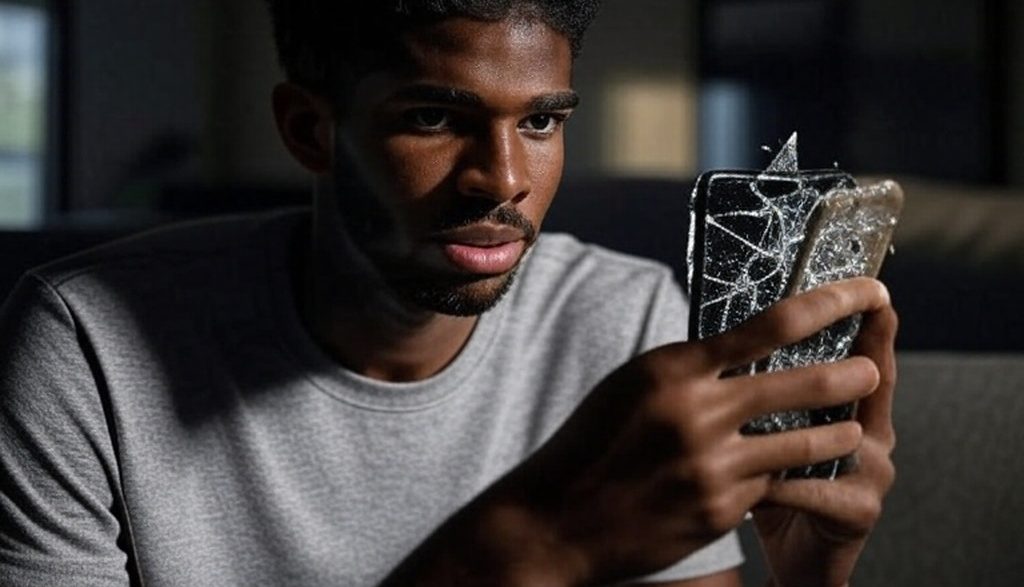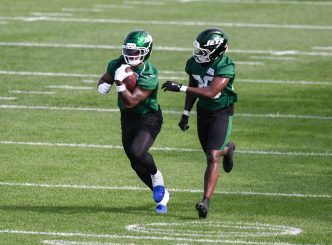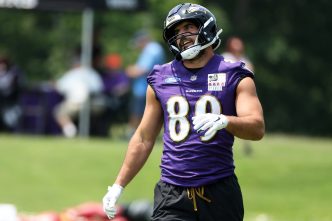The Atlanta Falcons found themselves in hot water during the 2025 NFL Draft weekend, not for their on-field strategy but for a prank call incident that has cast a shadow over their first-round trade-up to draft Tennessee edge rusher James Pearce Jr. at No. 6 overall. The controversy centers on Falcons defensive coordinator Jeff Ulbrich and his son, Jax, who prank-called Colorado quarterback Shedeur Sanders using a phone number obtained from Ulbrich’s iPad. On April 30, 2025, the NFL announced fines of $250,000 for the Falcons and $100,000 for Ulbrich, citing their failure to safeguard confidential information distributed ahead of the draft, as reported by Ari Meirov of MySportsUpdate on X.
The incident occurred on April 25, while the New Orleans Saints were on the clock at No. 5 during the first round. Jax Ulbrich, 21, accessed Sanders’ phone number from his father’s iPad and made the prank call, pretending to be a Falcons staff member. The call, which was recorded and posted online, racked up over 1.5 million views on YouTube within two days, per YouTube Analytics. Sanders, who believed he was speaking to a team official, expressed enthusiasm about joining the Falcons before the prank was revealed, leaving him visibly frustrated, per The Athletic’s Jeff Howe on April 26. Sanders wasn’t the only victim—Penn State tight end Tyler Warren, drafted No. 14 by the Indianapolis Colts, also received a prank call, which his representatives suspect came from Jax, per Fox News on April 27.
The NFL’s investigation concluded that the Falcons and Ulbrich violated league rules by failing to protect sensitive draft information. The league’s fines are a clear signal to prevent similar incidents in the future, but the question remains: how did Ulbrich gain access to Sanders’ phone number in the first place?
The Source of the Leak: NFL’s Distribution Error
ProFootballTalk’s Mike Florio clarified the chain of events on April 30, revealing that the NFL itself played a significant role in the breach. On April 23, 2025, the league sent a memo to a limited group of personnel—general managers, head coaches, player personnel directors, and club IT directors—containing the phone numbers of 45 draft prospects, including 16 attending in person, 24 participating virtually (like Sanders), and five from the 2025 International Player Pathway Program, per NBC Sports. This initial memo was appropriately restricted and did not include position coaches like Ulbrich.
However, later that day, the NFL sent a follow-up email specifically about Sanders’ updated phone number, which he had changed after concerns about potential pranks, per Fox News. This email was mistakenly distributed to a much larger group—all recipients of the NFL’s daily transaction report, which includes all coaches and assistant coaches league-wide, per Florio. Ulbrich was among those recipients. The email, which ProFootballTalk obtained, stated, “Sheadeur [sic] Sanders has informed the NFL Player Personnel Department that he has a new cell phone number beginning today,” and included the new number without marking it as “confidential,” a critical oversight that exposed the information to potential misuse.
Jax accessed this email via his father’s iPad, leading to the prank call that embarrassed Sanders, who was later selected by the Cleveland Browns at No. 144 overall, per USA Today Network. The Falcons acknowledged the breach, with Ulbrich stating on April 29 to The Atlanta Journal-Constitution’s D. Orlando Ledbetter, “I’m deeply sorry for the incident. I didn’t realize the information was accessible, and I’ve taken steps to ensure it won’t happen again.” The team facilitated an apology from Jax to Sanders and his family, per NFL.com.
Florio’s reporting shifts significant blame to the NFL, arguing, “The league, not the Falcons, gave Ulbrich the number.” By distributing Sanders’ updated number to a wide audience without proper safeguards, the NFL created the conditions for the leak. The lack of a “confidential” label on the email further compounded the issue, as it failed to signal the sensitivity of the information to recipients like Ulbrich, who left the iPad unsecured, per The Guardian. Florio contends that the NFL should bear primary responsibility, as the Falcons’ internal lapse—while negligent—was a secondary failure stemming from the league’s initial error.
The incident wasn’t isolated to Sanders. Warren’s prank call suggests a broader vulnerability in the NFL’s handling of draft prospect information, prompting the league to issue a memo on April 30 reminding teams to verify the identity of callers claiming to represent other organizations, per ProFootballTalk. The fines—$250,000 for the Falcons and $100,000 for Ulbrich, a rare individual penalty for a coach—reflect the NFL’s intent to crack down on such breaches, per The Guardian. In 2015, the Kansas City Chiefs were fined $250,000 and lost a third-round pick for tampering, a precedent for draft-related penalties, per NFL.com.
For the Falcons, who went 8-9 in 2024 and missed the playoffs for the seventh consecutive year, per Pro Football Reference, the incident detracts from their draft efforts. Pearce Jr., with 14.5 sacks at Tennessee in 2024, per ESPN, was a coup to bolster a pass rush that managed just 33 sacks (27th in the NFL) in 2024, per NFL.com. However, the fines add financial strain, and GM Terry Fontenot faces scrutiny as he navigates other decisions, like securing wide receiver Drake London’s fifth-year option after a 2024 season with 85 catches for 1,012 yards, per The Athletic’s Josh Kendall.
The NFL must now address its own protocols to prevent future leaks, especially as social media pranks targeting draft prospects become more common—Sanders’ call was one of several in 2025, per Fox News. While Sanders focuses on his new chapter with the Browns, per Cleveland.com’s Mary Kay Cabot, and Warren begins his career with the Colts, the league’s mishandling of their personal information underscores the need for stricter data security measures. The Falcons, meanwhile, must move past this embarrassment to focus on building a contender, but the incident serves as a costly reminder of the importance of protecting sensitive information in the high-stakes world of the NFL Draft.








